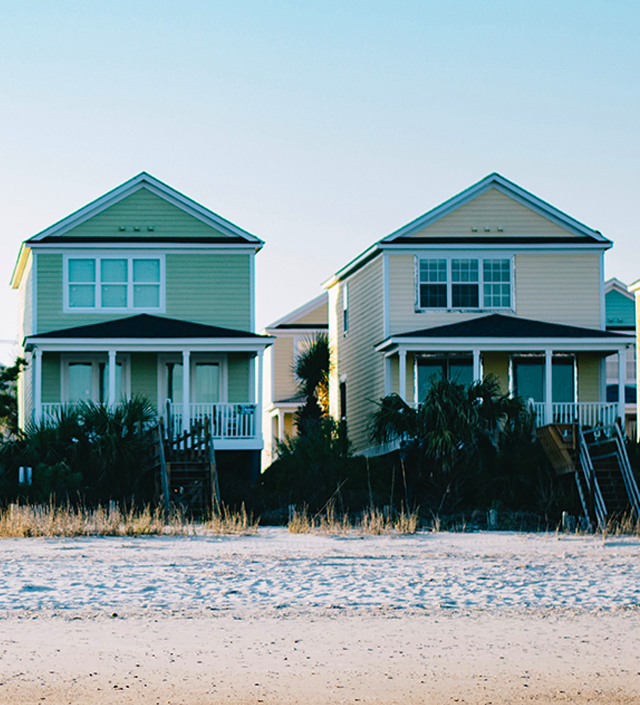
Investing in Vacation Homes: A Lucrative Opportunity or Risky Business?
With the rise of platforms like Airbnb and Vrbo, investing in vacation homes has become more appealing than ever. A second home in a dreamy location can generate passive income and serve as your personal getaway — but it’s not always sunshine and profit. Like any investment, buying a vacation property comes with risks, responsibilities, and a few unexpected curveballs.
So, is investing in vacation homes a golden opportunity or a gamble? Let’s break it down.
🌟 The Lucrative Side: Why Vacation Homes Can Be a Great Investment
1. Rental Income Potential
Vacation homes in high-demand tourist areas can bring in significant rental income, especially during peak seasons. If you manage the property well (or hire a management company), you could cover your mortgage — and even make a profit.
Example:
A beachfront condo rented for $300/night and booked 20 nights a month could gross $6,000/month — that’s $72,000 a year.
✅ Tip: Look for properties with year-round demand (e.g., ski resorts, tropical destinations, big cities) to maximize occupancy.
2. Property Appreciation
Over time, real estate generally appreciates, especially in popular vacation destinations. If you choose wisely, your vacation home could increase in value and provide long-term wealth through resale.
✅ Pro Tip: Research market trends in your desired location. Is tourism growing? Are there upcoming developments or infrastructure improvements?
3. Personal Use
Unlike other investments, a vacation home offers lifestyle benefits. You can use it yourself when it’s not rented out — saving money on hotels and creating memories with friends and family.
✅ Bonus: Some owners block out peak weeks for personal use while renting during shoulder seasons to maintain cash flow.
4. Tax Benefits
There may be potential tax deductions on:
- Mortgage interest
- Property taxes
- Depreciation
- Rental-related expenses (cleaning, repairs, management fees)
✅ Important: Tax benefits vary based on how often you use the property personally. Consult a tax advisor for specifics.
⚠️ The Risky Side: Potential Pitfalls to Watch For
1. Seasonal and Unstable Income
Vacation rentals are highly seasonal. If your property is in a location with limited appeal outside of peak season, your income can fluctuate significantly.
⚠️ Risk: You may have months with little to no rental income, but still owe the mortgage, taxes, and maintenance costs.
2. Higher Operating Costs
Vacation rentals come with ongoing expenses like:
- Furnishings and décor
- Utility bills
- Frequent cleaning and maintenance
- Property management fees (typically 20–30%)
- Licensing, HOA fees, and local regulations
✅ Tip: Budget 1–2% of the property value annually for maintenance and repairs.
3. Regulatory Restrictions
Some cities and HOAs have strict rules or outright bans on short-term rentals. Others may require costly permits, limit rental days, or impose steep fines for violations.
⚠️ Example: Major cities like New York, Barcelona, and Amsterdam have tightened restrictions on vacation rentals in recent years.
✅ Solution: Always check local laws before buying. Consider areas that are tourism-friendly and have a history of supporting vacation rentals.
4. Market Volatility
Tourism is sensitive to economic downturns, natural disasters, or health crises (like the COVID-19 pandemic). If people stop traveling, your bookings may dry up — along with your income.
✅ Pro Tip: Diversify income sources or choose a property that can work as a long-term rental backup in case short-term demand drops.
🧠 Is It Right for You? Key Questions to Ask
- Is the location consistently popular with tourists?
- Can you afford the property if rental income drops?
- Will you self-manage or hire a property manager?
- Are there legal or HOA restrictions on short-term rentals?
- What’s the return on investment (ROI) after expenses and taxes?
- Do you plan to use the home personally, or is this strictly a business venture?
📊 Crunch the Numbers Before You Buy
Here’s what to analyze:
- Purchase price + closing costs
- Estimated rental income (peak vs. off-season)
- Operating costs (insurance, taxes, utilities, maintenance)
- Occupancy rate (realistically — not just best-case)
- Return on investment (ROI) and cash flow
✅ Use online calculators or talk to a real estate advisor who specializes in vacation rentals.
🏁 Final Verdict: Opportunity or Risk?
✅ A vacation home can be a great investment — if:
- You buy in the right location
- Understand the market
- Budget for downtime
- Treat it like a business
⚠️ It’s a risk — if:
- You depend on peak-season bookings to break even
- You ignore local regulations
- You underestimate the time, effort, or cost of management
✨ Bottom Line:
It’s not passive income. It’s active investment. But for savvy buyers willing to do the research and commit to smart management, investing in a vacation home can be both profitable and personally rewarding.
Need help picking the right location or calculating your potential ROI? Let me know — I can help you analyze the numbers or even suggest hot vacation rental markets for 2025.